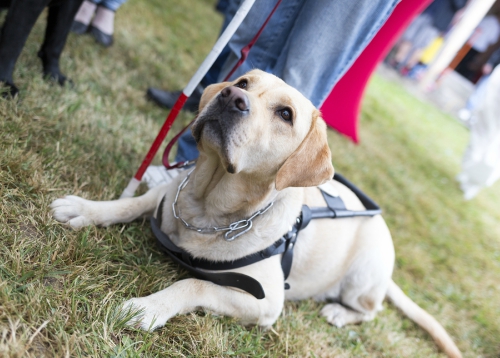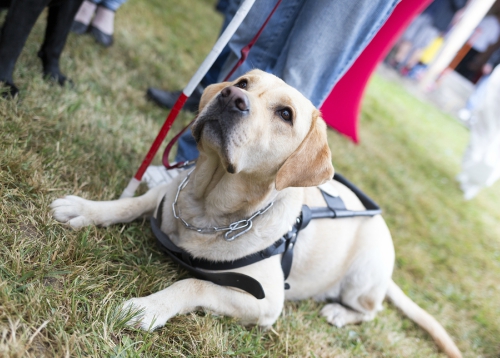 Most people are familiar with guide dogs for the blind and some of what they do for their owners. You might also be aware of hearing ear dogs and dogs that provide assistance to people with mobility problems. But, did you know that dogs are now being trained as service dogs to older adults with dementia or Alzheimer’s disease?
Most people are familiar with guide dogs for the blind and some of what they do for their owners. You might also be aware of hearing ear dogs and dogs that provide assistance to people with mobility problems. But, did you know that dogs are now being trained as service dogs to older adults with dementia or Alzheimer’s disease?
History of Dementia Service Dogs
The idea for dogs that could assist people with memory loss began in Israel when a social worker who worked with Alzheimer’s patients met a dog trainer. The two realized that the love dogs have for routines could be used to train them to assist people with cognitive problems.
Later, in Scotland, a group of students submitted the idea as an entry into a contest. Contestants had been challenged to come up with new service or products for people living with dementia. Alzheimer’s Scotland found funding for the idea and began researching it. The project became known as Dementia Dog, and it continues today in its efforts to train and promote the use of dogs for dementia assistance.
On the Dementia Dog website, the organization shares stories of how the dogs are helping people living with dementia. The stories note that the dogs help with anxiety, nudging the senior to draw their attention, causing them to focus on the dog instead of their anxiousness. One person noted that the dog greets her husband with dementia every morning, so he starts his day on a positive note.
What Do Dementia Service Dogs Do?
To be defined as a service dog under the Americans with Disabilities Act (ADA), a dog must be trained to specifically perform tasks to aid a person with a disability. Dementia service dogs are being trained to perform several tasks, such as:
- Taking a person home when they become lost. The person issues the command “home” and the dog leads them. If the person is too confused to issue the command, worried caregivers can trigger a GPS device on the dog’s collar to locate them.
- Leading the person through their daily routine. For example, the dog may be trained to lead the senior to a cupboard that contains dog food, and a note from their family caregiver that gives them instructions for the day.
- Responding to sound triggers. The dog can be trained to respond to a sound, such as an alarm, to bring a bag containing medicine to the older adult, reminding them that it is time to take them.
A dementia dog can make life for a dementia sufferer and their family caregivers easier and more enjoyable. During the early stages of the disease, a dementia dog can allow the older adult to remain more independent, allowing them to continue leaving the house with confidence, knowing the dog can lead them home should the become lost.
Sources
https://www.rover.com/canine-caregivers-dementia-alzheimers/
https://thebark.com/content/dementia-assistance-dogs
http://dementiadog.org/dementia-dog-%E2%94%82-stories.html
https://www.ada.gov/service_animals_2010.htm
If you or an aging loved one are considering hiring caregivers in San Jose, CA, please contact the caring staff at Home Helpers today (408) 259-5930.

